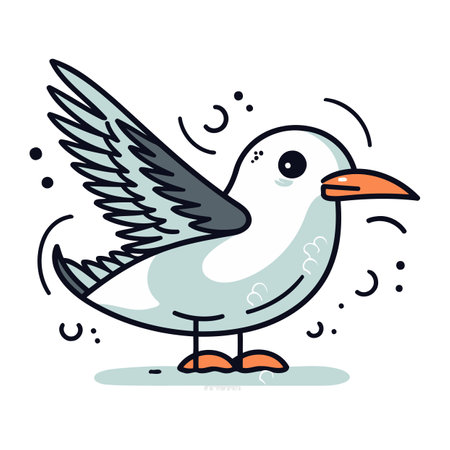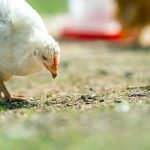1. Introduction to Bird Nutrition
Providing proper nutrition is one of the most important aspects of caring for a pet bird. A well-balanced diet ensures that your feathered friend stays healthy, active, and happy. Just like humans, birds require a variety of essential nutrients to support their overall well-being, including vitamins, minerals, proteins, and healthy fats.
Why Proper Nutrition Matters
A bird’s diet directly impacts its health, lifespan, and quality of life. Poor nutrition can lead to a weakened immune system, feather plucking, obesity, or even life-threatening illnesses. On the other hand, a balanced diet helps maintain strong bones, vibrant feathers, and high energy levels.
The Impact of Nutrition on Lifespan
Birds that receive proper nutrition tend to live significantly longer than those with an imbalanced diet. Malnutrition can shorten a bird’s lifespan by causing chronic health issues such as liver disease, vitamin deficiencies, and metabolic disorders.
Key Nutrients for a Healthy Bird
| Nutrient | Importance | Sources |
|---|---|---|
| Proteins | Supports muscle growth and repair | Cooked eggs, legumes, pellets |
| Vitamins (A, D, E, K) | Essential for immune function and bone health | Leafy greens, fruits, fortified pellets |
| Minerals (Calcium, Phosphorus) | Keeps bones strong and supports metabolism | Cuttlefish bone, mineral blocks, dairy-free calcium supplements |
| Healthy Fats | Aids in feather condition and energy levels | Nuts, seeds (in moderation), flaxseeds |
| Fiber | Aids digestion and prevents obesity | Fresh vegetables, whole grains |
The Role of Variety in Diet
A diverse diet is key to ensuring birds get all the necessary nutrients. Feeding only seeds can lead to nutritional deficiencies since seeds are often high in fat and lack essential vitamins. Incorporating fresh fruits, vegetables, high-quality pellets, and occasional protein sources helps provide a well-rounded diet.
Avoiding Common Dietary Mistakes
- Avoid Seed-Only Diets: While birds love seeds, relying solely on them can lead to malnutrition.
- No Avocado or Chocolate: These foods are toxic to birds and should never be fed.
- Lack of Fresh Water: Always provide clean drinking water daily.
- Avoid High-Sugar or Salty Foods: Processed human snacks can harm your bird’s health.
- No Overfeeding Treats: Treats should only be given in moderation to prevent obesity.
A balanced diet is essential for keeping your pet bird healthy and thriving. By understanding their nutritional needs and providing a varied diet rich in essential nutrients, you can ensure a long and happy life for your feathered companion.
2. Key Nutrients for a Balanced Diet
Providing your pet bird with a well-balanced diet is essential for their overall health and longevity. Birds require a variety of nutrients, including proteins, carbohydrates, fats, vitamins, and minerals, to maintain energy levels, support growth, and strengthen their immune systems. Below, well explore these key nutrients and their importance in your birds diet.
Proteins: Building Blocks of Health
Proteins are crucial for muscle development, feather growth, and tissue repair. Birds obtain protein from sources such as pellets, seeds, legumes, and even small amounts of cooked eggs or lean meats. Ensuring they receive enough high-quality protein helps them stay active and maintain strong feathers.
Carbohydrates: Energy Source
Carbohydrates provide the energy birds need for daily activities like flying, climbing, and playing. Fruits, vegetables, grains, and specially formulated bird pellets are excellent sources of carbohydrates. A good mix of simple and complex carbs keeps your bird energized throughout the day.
Fats: Essential for Warmth and Energy Storage
Healthy fats support brain function, feather condition, and energy storage. Nuts, seeds (such as flaxseed and sunflower seeds), and some fruits provide beneficial fats that help maintain a bird’s metabolic balance. However, excessive fat intake can lead to obesity, so portion control is important.
Vitamins: Supporting Overall Well-Being
Vitamins play a vital role in maintaining a healthy immune system, strong bones, and proper organ function. Different vitamins serve different purposes:
| Vitamin | Function | Sources |
|---|---|---|
| Vitamin A | Supports vision & immunity | Carrots, sweet potatoes, leafy greens |
| Vitamin D | Aids calcium absorption & bone health | Naturally synthesized from sunlight or fortified foods |
| Vitamin E | Helps with cell function & feather health | Nuts, seeds, spinach |
| B Vitamins | Boosts metabolism & nervous system health | Whole grains, legumes, eggs |
Minerals: Strengthening Bones and Body Functions
Your bird needs essential minerals for strong bones, beak health, and muscle function. Calcium is particularly important for egg-laying birds to prevent deficiencies. Providing cuttlebone or mineral blocks ensures adequate calcium intake. Other necessary minerals include iron (for oxygen transport), potassium (for muscle function), and zinc (for feather quality).
The Importance of a Varied Diet
A balanced diet combining fresh foods with high-quality commercial pellets ensures your bird receives all the necessary nutrients. Offering a mix of fresh vegetables, fruits, grains, nuts, and seeds—along with proper supplementation when needed—helps keep your bird happy and healthy.

3. Understanding Commercial vs. Fresh Food
Choosing the right food for your pet bird is crucial for its health and well-being. Many bird owners rely on store-bought commercial food, while others prefer fresh, natural alternatives. Understanding the differences between these options can help you create a balanced diet that meets your bird’s nutritional needs.
Commercial Bird Food: Pros and Cons
Pet stores offer a variety of packaged bird foods, including pellets, seed mixes, and fortified blends. These products are formulated to provide essential nutrients, but they also have some drawbacks.
| Pros | Cons |
|---|---|
| Convenient and easy to store | May contain artificial preservatives or fillers |
| Often fortified with vitamins and minerals | Some birds may pick out only their favorite seeds |
| Available in different formulas for specific species | Less variety compared to fresh food |
Fresh Food: A Natural Approach
Fresh fruits, vegetables, and grains provide birds with essential nutrients in their natural form. A diet rich in fresh foods can contribute to a healthier immune system and improved feather condition.
| Recommended Fresh Foods | Avoid These Foods |
|---|---|
| Leafy greens (spinach, kale) | Avocado (toxic to birds) |
| Berries (strawberries, blueberries) | Chocolate or caffeine-containing foods |
| Cooked whole grains (quinoa, brown rice) | Onions and garlic (can cause digestive issues) |
| Nuts (unsalted almonds, walnuts) | Sugary or processed foods |
Creating a Balanced Diet for Your Bird
A combination of commercial bird food and fresh ingredients can provide the best nutrition. Here are some tips for achieving a well-balanced diet:
1. Mix Commercial and Fresh Food
If using store-bought food, supplement it with fresh fruits and vegetables daily to add variety and additional nutrients.
2. Rotate Ingredients Regularly
Avoid feeding the same foods every day. Rotating ingredients helps prevent nutritional deficiencies and keeps meals interesting for your bird.
3. Monitor Portion Sizes
Offer an appropriate amount of food based on your bird’s species, size, and activity level. Overfeeding can lead to obesity, while underfeeding may result in malnutrition.
4. Provide Clean Water Daily
Always ensure your bird has access to fresh, clean water. Avoid sugary drinks or flavored beverages.
5. Observe Your Bird’s Eating Habits
If your bird refuses certain foods or shows changes in appetite, consult an avian veterinarian for guidance.
A well-balanced diet plays a vital role in keeping your feathered friend happy and healthy. By combining high-quality commercial food with fresh, nutritious options, you can ensure your bird receives all the essential nutrients it needs.
4. Common Dietary Mistakes to Avoid
Feeding your pet bird a balanced diet is essential for its health and longevity. However, many bird owners unknowingly make dietary mistakes that can negatively impact their feathered friend’s digestion and overall well-being. Understanding what foods to avoid and recognizing common feeding errors will help you provide the best nutrition for your bird.
Harmful Foods to Avoid
Certain foods that are safe for humans can be toxic or unhealthy for birds. Feeding your bird these items can lead to digestive issues, nutrient deficiencies, or even serious health problems.
| Food | Why It’s Harmful |
|---|---|
| Chocolate | Contains theobromine, which is toxic to birds and can cause heart issues or seizures. |
| Avocado | Persin, a substance found in avocados, is toxic to birds and can cause respiratory distress or death. |
| Caffeine | Affects the nervous system and heart rate, leading to potential cardiac arrest. |
| Dairy Products | Birds lack the enzymes needed to digest lactose, which can lead to digestive discomfort. |
| Sugary or Salty Foods | Excessive sugar or salt intake can lead to dehydration, kidney issues, or obesity. |
| Alcohol | Toxic to birds in any amount, leading to severe organ damage and possible death. |
| Dried Beans (Raw) | Contain toxins like hemagglutinin, which can be deadly if consumed uncooked. |
Common Feeding Mistakes
Apart from avoiding harmful foods, its also important to recognize common mistakes in feeding routines that could affect your bird’s health.
An All-Seed Diet
A diet consisting solely of seeds lacks essential vitamins and minerals. While seeds should be part of your bird’s diet, they must be supplemented with fresh vegetables, fruits, and high-quality pellets.
Lack of Fresh Fruits and Vegetables
Birds need a variety of fresh produce for essential nutrients. Failing to include them in their diet can lead to vitamin deficiencies and weakened immune systems.
Overfeeding Treats
Treats like nuts and dried fruits should only be given in moderation. Too many treats can lead to obesity and an unbalanced diet.
No Access to Fresh Water
Your bird should always have access to clean, fresh water. Stagnant or dirty water can harbor bacteria that may cause infections.
Ineffective Food Storage
Poor storage conditions for seeds, pellets, or fresh food can lead to mold growth or contamination. Always store bird food in airtight containers and check for spoilage before feeding.
Avoiding these common mistakes will help ensure that your bird receives proper nutrition for a long and healthy life. By being mindful of harmful foods and maintaining a balanced diet, you can support your pet’s overall well-being.
5. Hydration and Supplementation
Proper hydration and balanced supplementation play a crucial role in keeping your pet bird healthy. Just like humans, birds need fresh water daily, and they may also benefit from certain dietary supplements to ensure they receive all the essential nutrients.
The Importance of Fresh Water
Water is vital for your bird’s digestion, temperature regulation, and overall well-being. Dehydration can quickly lead to health problems, so always provide clean, fresh water. Here are some tips to ensure proper hydration:
- Change the water at least once or twice a day.
- Use a clean dish or water bottle to prevent contamination.
- Avoid using distilled water—filtered or tap water (if safe) is best.
- Watch for signs of dehydration, such as dry skin or lethargy.
The Role of Supplements
While a well-balanced diet should provide most of the necessary nutrients, some birds may require additional supplementation. Factors like age, species, and diet influence whether supplements are needed. Below are common types of bird supplements:
| Supplement Type | Purpose | How to Use |
|---|---|---|
| Calcium | Supports bone health and egg-laying in females. | Add cuttlebone or calcium powder to food. |
| Vitamins A, D, E | Aids in immune function, vision, and overall health. | Add liquid vitamins to water or sprinkle on food. |
| Amino Acids | Essential for feather growth and muscle maintenance. | Sourced from high-quality pellets or protein-rich foods. |
| Probiotics | PROMOTES gut health and digestion. | Add probiotic powder to food occasionally. |
How to Ensure Your Bird Gets All the Nutrients It Needs
A balanced diet with proper hydration and supplementation ensures your bird stays healthy. Follow these guidelines:
- Diverse Diet: Offer a mix of pellets, fresh fruits, vegetables, and seeds.
- Avoid Over-Supplementation: Too many vitamins or minerals can be harmful. Consult an avian vet before adding supplements.
- Create a Routine: Establish consistent feeding times and monitor your bird’s eating habits.
- Mimic Natural Foraging: Hide treats in toys to encourage natural behaviors and mental stimulation.
Caring for your bird’s nutritional needs takes attention and consistency. By providing fresh water daily and supplementing wisely, you can help your feathered friend thrive!
6. Signs of Nutritional Deficiencies and Solutions
Proper nutrition is essential for keeping your pet bird healthy and happy. If a bird’s diet lacks essential nutrients, it can lead to various health problems. Recognizing the signs of nutritional deficiencies early can help prevent serious issues. Below are common symptoms of poor nutrition and how to adjust your bird’s diet accordingly.
Common Signs of Nutritional Deficiencies
Birds rely on a balanced diet to maintain their overall well-being. If they are not getting the right nutrients, you may notice some of these symptoms:
| Deficiency | Signs & Symptoms | Possible Causes |
|---|---|---|
| Vitamin A Deficiency | Pale or swollen eyes, respiratory issues, dry or flaky skin, weak immune system | Lack of fresh fruits and vegetables in the diet |
| Calcium Deficiency | Weak bones, egg-binding in female birds, tremors, poor feather quality | Poor calcium intake from seeds-only diets or lack of cuttlebone/mineral blocks |
| Protein Deficiency | Poor feather growth, muscle loss, lethargy, weak immune response | Diets lacking high-quality protein sources such as legumes or eggs |
| Iodine Deficiency | Shrunken or enlarged thyroid (goiter), breathing difficulty, weight loss | Lack of iodine-rich foods like seaweed or iodine supplements |
| Iron Overload (Hemochromatosis) | Liver damage, lethargy, abdominal swelling, difficulty breathing | Diets too rich in iron, such as excessive consumption of iron-fortified foods |
How to Improve Your Bird’s Diet
If you notice any of these symptoms in your bird, making dietary changes can help restore its health. Here are some ways to ensure a well-balanced diet:
Add More Fresh Fruits and Vegetables
A variety of fresh produce provides essential vitamins and minerals. Dark leafy greens, carrots, sweet potatoes, and bell peppers are excellent choices.
Incorporate Calcium Sources
If your bird shows signs of calcium deficiency, offer cuttlebone, mineral blocks, or calcium-rich foods like broccoli and almonds.
Avoid an All-Seed Diet
A seed-only diet lacks many essential nutrients. Mix in pellets formulated for your bird species along with healthy grains like quinoa and brown rice.
Add Protein-Rich Foods
If your bird needs more protein, consider offering boiled eggs, cooked lentils, or small amounts of lean meat.
Beware of Excess Iron Intake
Certain birds, such as toucans and mynahs, are prone to iron overload. Avoid iron-fortified foods and consult an avian vet if youre unsure about your bird’s dietary needs.
The Importance of Regular Check-Ups
If you suspect your bird is suffering from nutritional deficiencies despite dietary improvements, consult an avian veterinarian. A vet can perform tests to diagnose deficiencies and recommend specific dietary adjustments or supplements.

